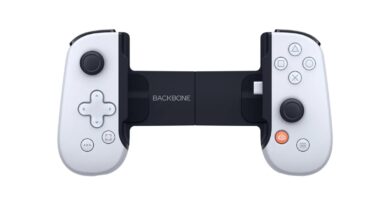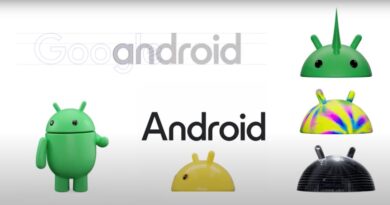YC-backed Eze raises new capital for its secondhand electronics marketplace
Eze, a B2B marketplace that connects global electronic wholesalers allowing them to trade devices in large quantities with real-time market data, has raised $3.7 million in an oversubscribed seed round.
Founded by Joshua Nzewi and David Iya in 2020, Eze directly connects distributors and retail stores of used smartphones, mostly iPhones, and other electronics, including laptops and tablets, with electronics suppliers, providing access to an extensive inventory from over a hundred wholesalers and manufacturers.
Shipments of used smartphones will have a compound annual growth rate (CAGR) of 10.3% from 2021 to 2026, reaching $99 billion in value, according to tech analyst the International Data Corporation (IDC). To place this growth in a smaller context, in 2022, used smartphone shipments of 283 million represented an 11.5% increase over the 253.4 million units shipped the year before — and with the growth in shipments of new smartphones taking a blow since the pandemic with factors such as global supply chain issues and consumers’ reduced spending, the used smartphones market is poised for faster growth, per IDC.
Currently, traders in the B2B space use inefficient means to trade, such as WhatsApp and WeChat, which results in poor distribution, numerous unneeded middlemen, pricing fragmentation, zero quality control, and rampant fraud. “It’s almost every day we see someone getting scammed in one of these group chats where people are doing business,” CEO Nzewi said on the call. “So we knew that a product like ours was essential in the market to keep these individuals safe.”
Eze aims to formalize trade in these areas, such as Lagos’ Computer Village, Nigeria’s busiest electronics market, by connecting retail stores and distributors to telecom companies and wholesalers of electronics in the U.S. “That’s kind of been our business model since we started, but we’ve expanded quite a bit starting to onboard suppliers in Japan and Hong Kong and then opening up a facility in Dubai, as well,” the CEO added.
Here’s how the platform works. Buyers and sellers (businesses that deal with used smartphones and electronics) submit buy and sell requests on the YC-backed upstart, which then connects the two parties with compatible bids and executes the trade.
The used gadgets sold on Eze go through a standardized grading process created by the platform to check originality and functionality. There’s a 30-day warranty on the products, and customers can opt for an exchange upon return, get additional credit, or extend the warranty to 180 days and pass it to the end customer. Eze has registered a return rate of less than 2% since inception, according to Nzewi.
Eze claims to provide real-time market prices and eliminate transaction risk by acting as an intermediary offering competitive pricing, global payment support, net payment financing and automated logistics. The company partners with FedEx for logistics in the U.S., Europe, and Southeast Asia while using third-party logistics services across its Latin American and African markets.
“In most of the countries that we’re serving, we have by now pay later services that are all catered towards businesses,” the chief executive said, mentioning other offerings businesses can access on Eze. “We’re partnering with several firms within Nigeria and other regions of the world to support cross-currency transactions and allow our businesses to pay, and our sellers receive, in their respective local currencies.”
In addition, as with many venture-backed, non-fintech startups, Eze has introduced a fintech play that will act as a new revenue stream to complement the transaction margins. Dubbed Eze Capital and launched in partnership with banks and merchant financing companies, it will allow businesses to fund their purchases or finance their finance inventory, receivables and operations. However, the product, having already disbursed $750,000 since last year, is only available within the U.S., according to Nzewi. Meanwhile, Eze has over 1,000 business customers in more than 15 countries worldwide, including Mexico, its largest market; Nigeria, its first market; South Africa and Ukraine.
The three-year-old startup has facilitated the sale of over 500,000 devices since it launched in early 2021. Before building the Los Angeles-based business, the founders were wholesalers and claimed to have sold $8 million worth of devices within the first two years they entered the space. Eze’s seed round included backers such as Y Combinator, Right Side Capital, C2 Ventures, Boro Capital, EVPI Investments, Itochu, Jack Greco, and other angel investors.
“As far as well-established and massive yet shockingly disjointed and inefficient industries go, the secondhand electronics market is one of the most broken we’ve seen. Despite being an $80 billion business that is 5x the size of the primary electronics market (by volume), the secondhand electronics market is rife with problems,” said Chris Cunningham, partner at C2 Ventures. “Eze solves these problems via a global marketplace that allows sellers and end buyers to connect directly while providing price transparency (via centralized bidding), quality control, through a proprietary QA process, and fraud prevention, via a centralized payment process. Josh and David are the perfect duo to solve this problem and we are incredibly excited and grateful to support them on this journey and being a part of the C2 Ventures portfolio.”
YC-backed Eze raises new capital for its secondhand electronics marketplace by Tage Kene-Okafor originally published on TechCrunch





